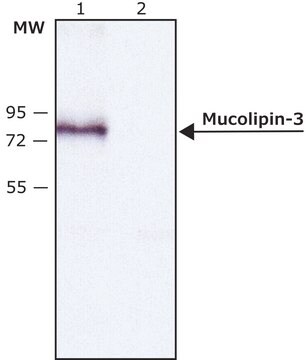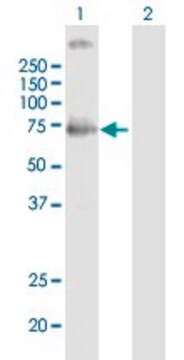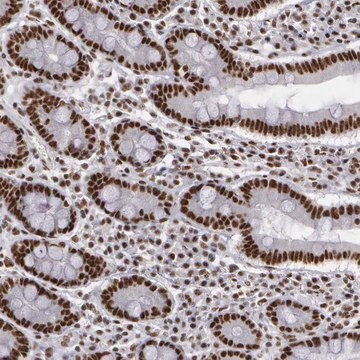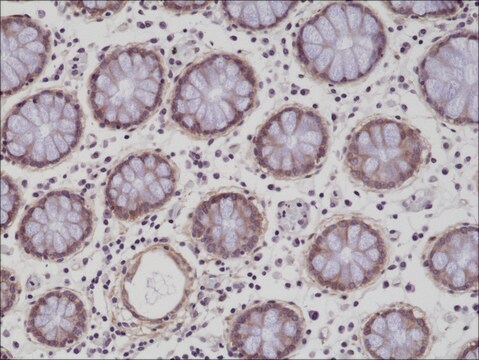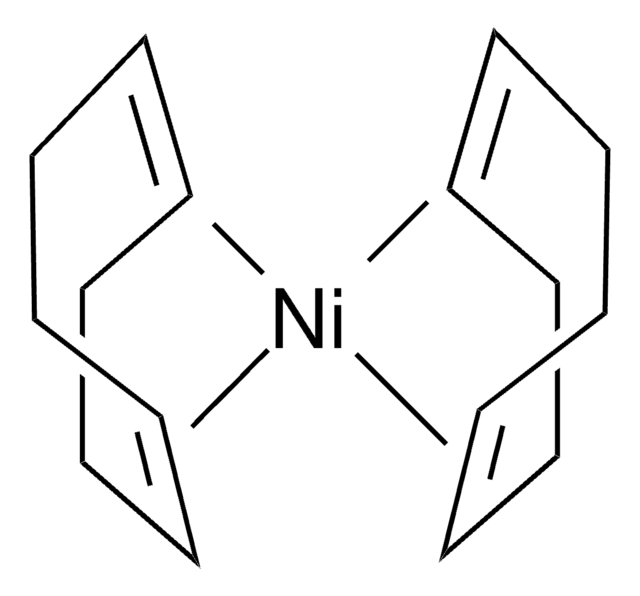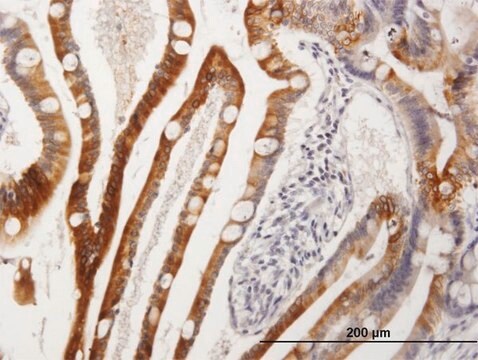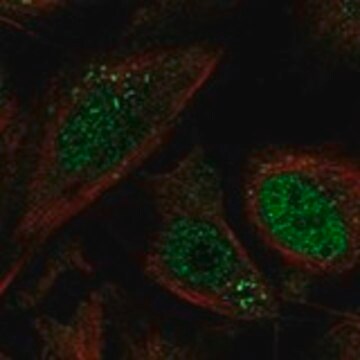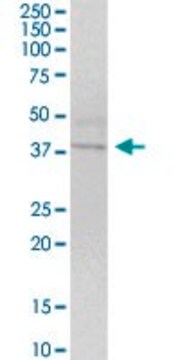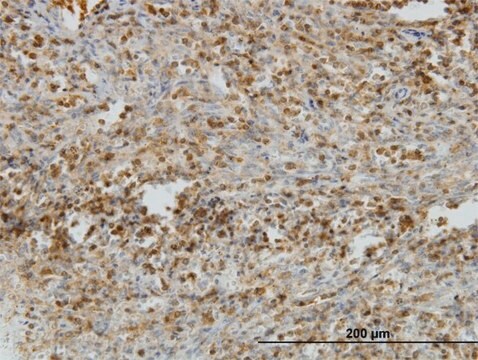M8072
Anti-Mucolipin-1 antibody, Mouse monoclonal
clone MLN128, purified from hybridoma cell culture
Synonym(e):
Anti-MCOLN1, Anti-ML4, Anti-MLIV, Anti-MST080, Anti-MSTP080, Anti-Mucolipidin, Anti-TRP-ML1, Anti-TRPM-L1, Anti-TRPML1, Anti-Transient receptor potential cation channel, mucolipin subfamily, member 1
About This Item
Empfohlene Produkte
Biologische Quelle
mouse
Konjugat
unconjugated
Antikörperform
purified from hybridoma cell culture
Antikörper-Produkttyp
primary antibodies
Klon
MLN128, monoclonal
Form
buffered aqueous solution
Mol-Gew.
antigen ~110 kDa (additional bands may be observed)
Speziesreaktivität
human
Verpackung
antibody small pack of 25 μL
Konzentration
~2.0 mg/mL
Methode(n)
immunocytochemistry: suitable
indirect ELISA: suitable
western blot: 4-8 μg/mL using membrane fraction of HEK-293T expressing human mucolipin-1
UniProt-Hinterlegungsnummer
Versandbedingung
dry ice
Lagertemp.
−20°C
Posttranslationale Modifikation Target
unmodified
Angaben zum Gen
human ... MCOLN1(57192)
Allgemeine Beschreibung
Anwendung
- enzyme linked immunosorbent assay (ELISA)
- immunoblotting
- immunocytochemistry.
Biochem./physiol. Wirkung
Physikalische Form
Haftungsausschluss
Sie haben nicht das passende Produkt gefunden?
Probieren Sie unser Produkt-Auswahlhilfe. aus.
Ähnliches Produkt
Lagerklassenschlüssel
10 - Combustible liquids
WGK
WGK 1
Flammpunkt (°F)
Not applicable
Flammpunkt (°C)
Not applicable
Persönliche Schutzausrüstung
Eyeshields, Gloves, multi-purpose combination respirator cartridge (US)
Hier finden Sie alle aktuellen Versionen:
Analysenzertifikate (COA)
Die passende Version wird nicht angezeigt?
Wenn Sie eine bestimmte Version benötigen, können Sie anhand der Lot- oder Chargennummer nach einem spezifischen Zertifikat suchen.
Besitzen Sie dieses Produkt bereits?
In der Dokumentenbibliothek finden Sie die Dokumentation zu den Produkten, die Sie kürzlich erworben haben.
Unser Team von Wissenschaftlern verfügt über Erfahrung in allen Forschungsbereichen einschließlich Life Science, Materialwissenschaften, chemischer Synthese, Chromatographie, Analytik und vielen mehr..
Setzen Sie sich mit dem technischen Dienst in Verbindung.